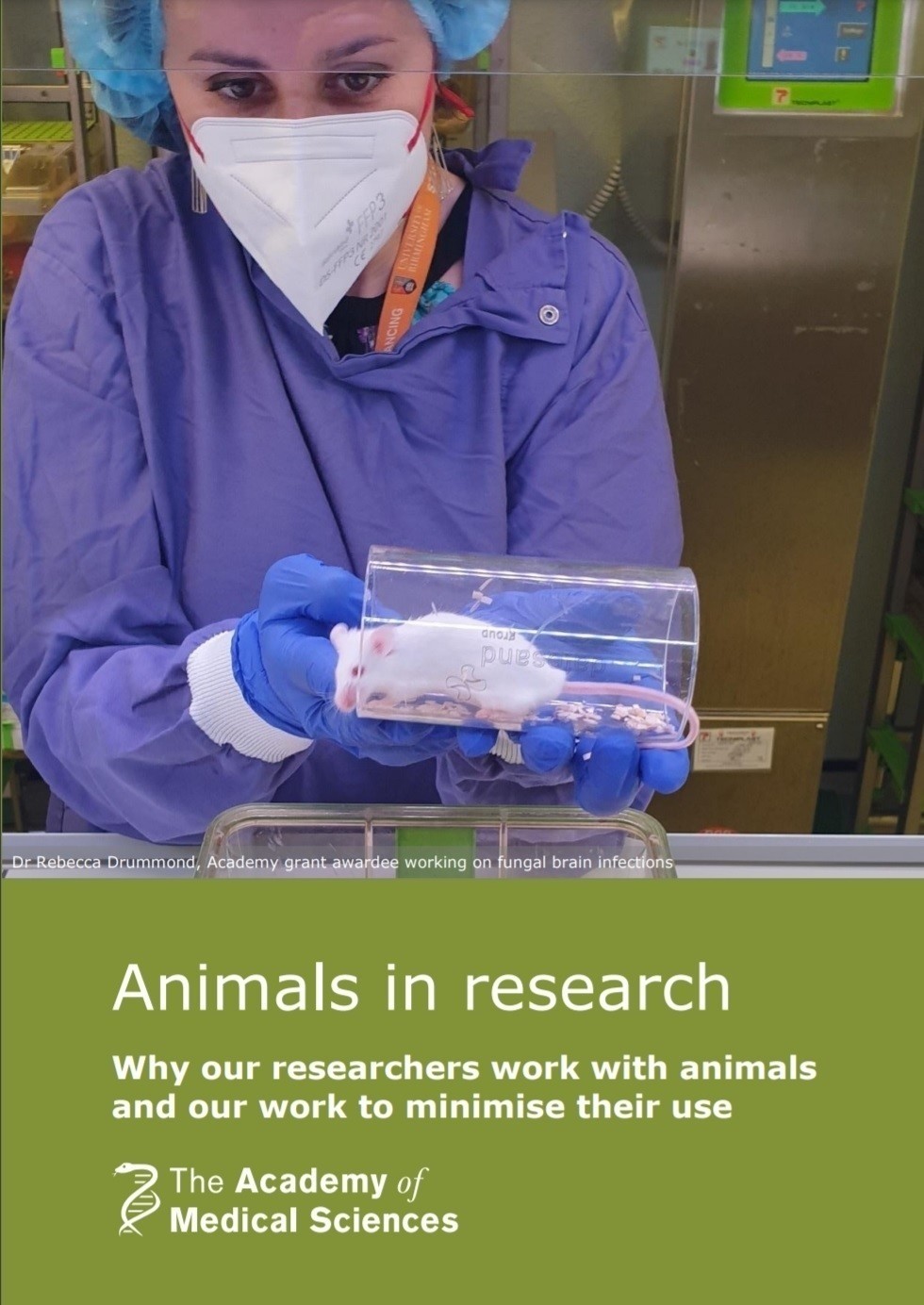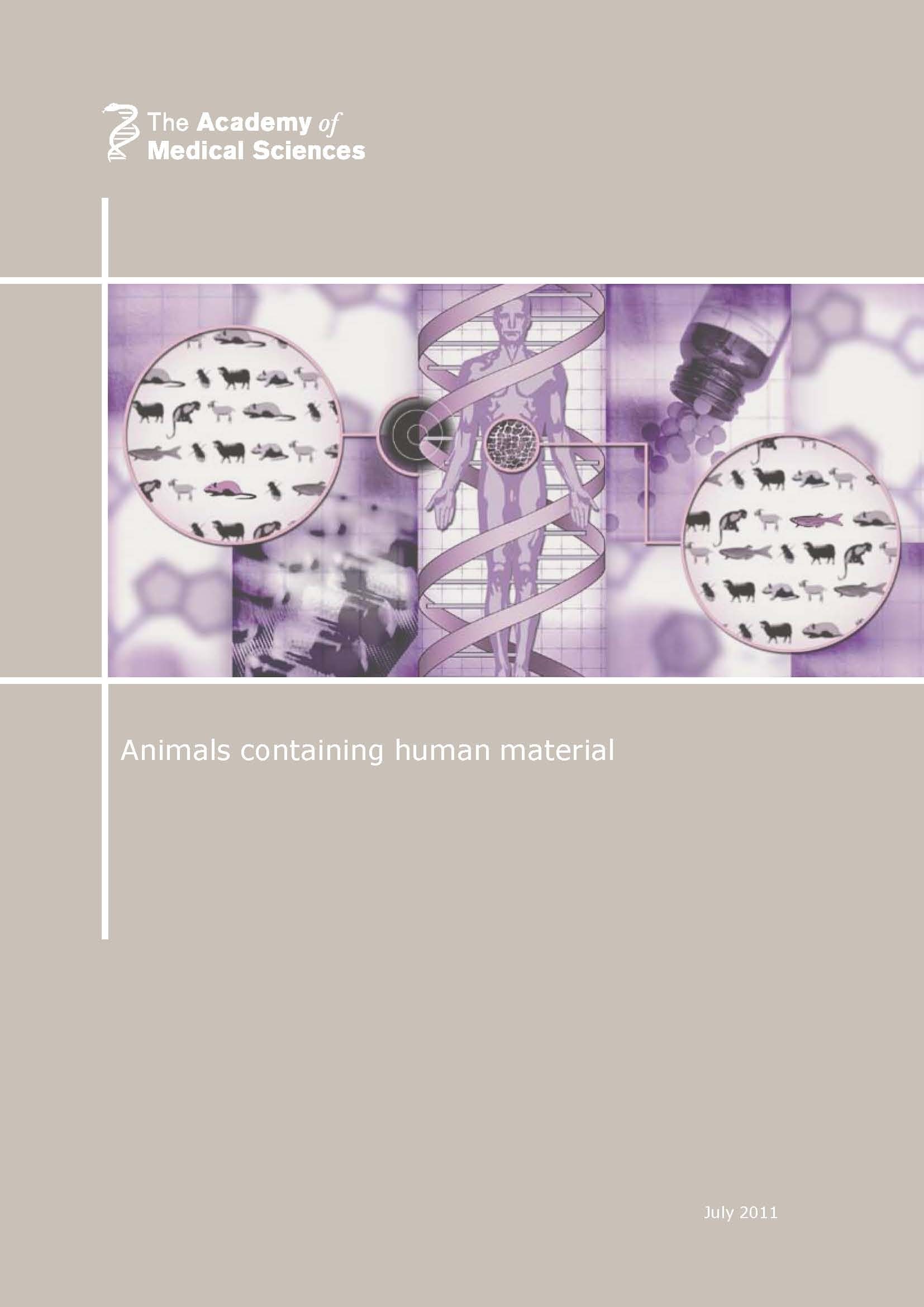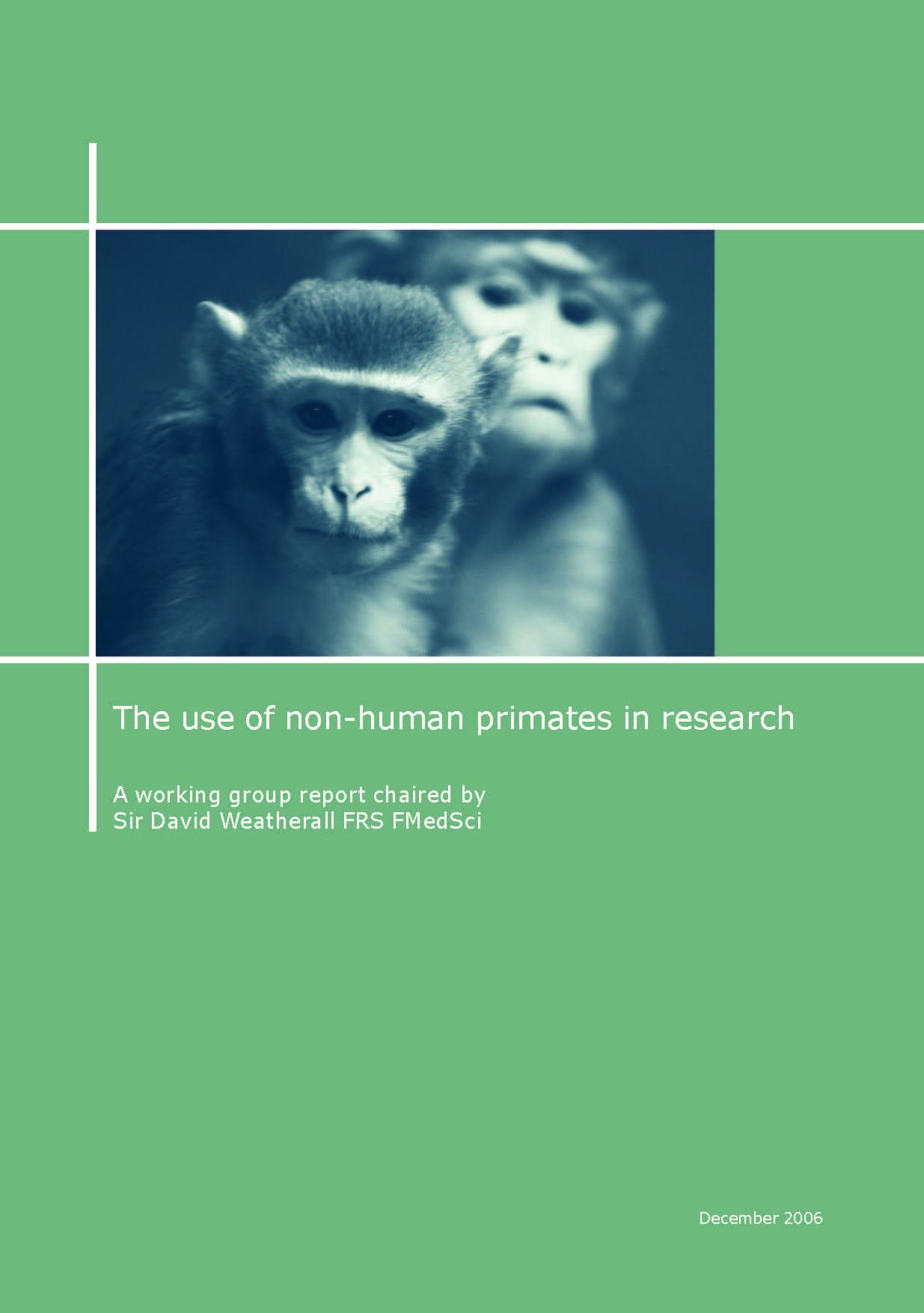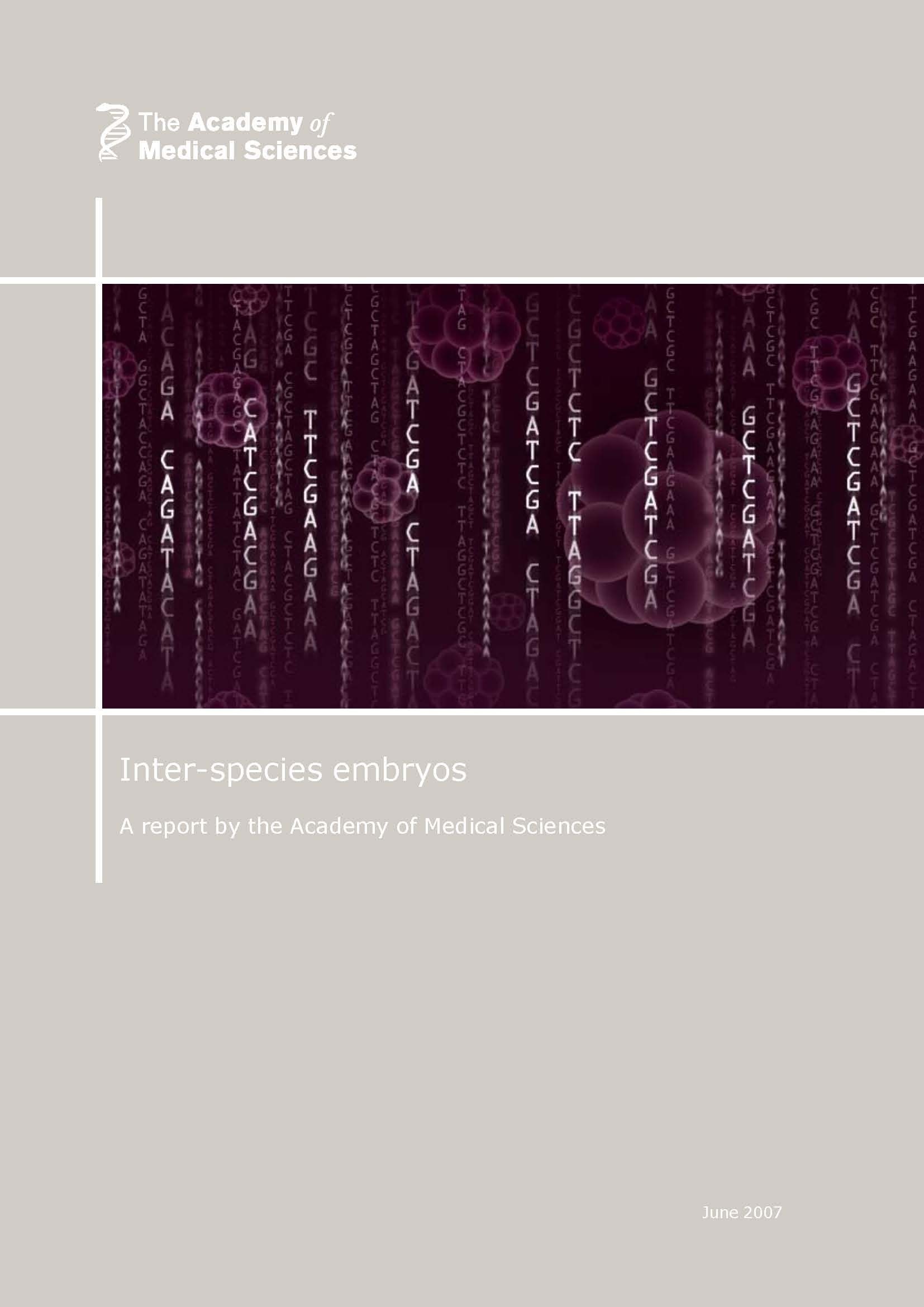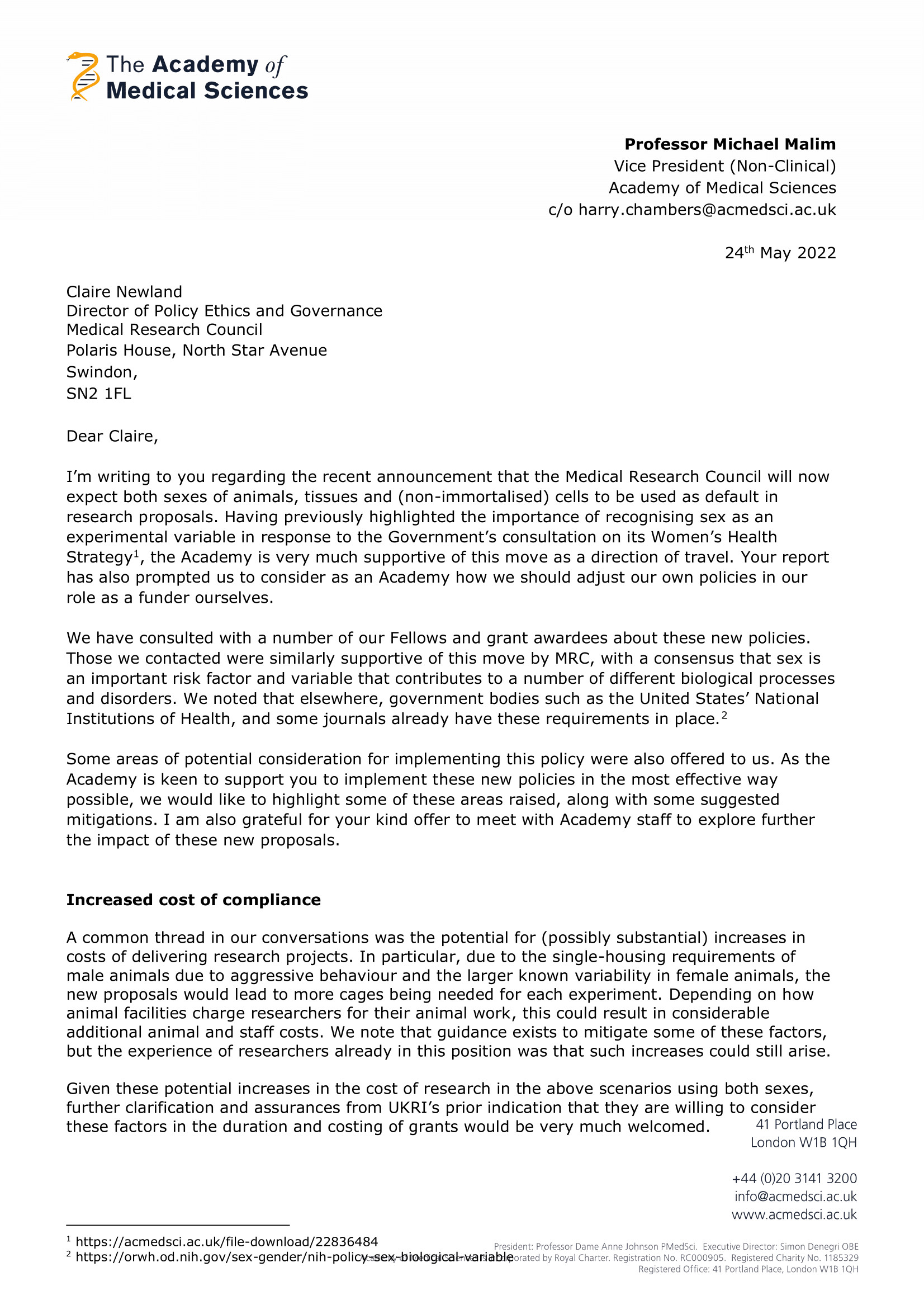We are a signatory of the Concordat on openness on animal research. We do not take the decision to support and fund animal research lightly and are committed to being open about the use of animals in research we fund.
We have produced a short booklet about why our researchers work with animals and our work to minimise their use.  We speak to eight researchers funded by the Academy from across the UK, and asked and how they follow the principles of the 3Rs - to replace, reduce and refine the use of animals - and the impacts of their research. It features include vets studying animals in order to improve animal health, computer scientists replacing animals with simulated models, and people reesarching mice, rats and zebrafish, and how they are helping develop new treatments and medicines.
We speak to eight researchers funded by the Academy from across the UK, and asked and how they follow the principles of the 3Rs - to replace, reduce and refine the use of animals - and the impacts of their research. It features include vets studying animals in order to improve animal health, computer scientists replacing animals with simulated models, and people reesarching mice, rats and zebrafish, and how they are helping develop new treatments and medicines.
We also publish yearly statistics on the number of research grants we have funded that propose the use of animals and which species they proposed to use:

The Academy is working on all aspects of animals in research, from engaging in debate about how to regulate the use of animals in research, to efforts to improve the openness of organisations that are involved in animal research.
The Academy is an active member of the Animal Science Group and the UK Bioscience Sector Coalition Public Affairs Group.
- Animals containing human material (2011). This report called for additional oversight to ensure that innovative science using these animal models could flourish, within clearly defined ethical boundaries and with public support. It led to the development of guidance for these experimental animals from the Home Office, Department of Health and Human Fertilisation and Embryology Authority. We continue to monitor developments in this field of research. In February 2016, the Home Office published new guidance on the use of human material in animals as a direct result of the recommendations of this report.
- Interspecies embryos (2007). This report was instrumental in influencing the Government’s decision to support this research and an invaluable source of information during debates on the Human Fertilisation and Embryology Bill. This report was the first on this topic in the world and it was studied by bodies in the USA, Singapore, Australia and Denmark. The Academy was invited to assist the pre-legislative Scrutiny Committee for the Human Fertilisation and Embryology Bill and briefed Parliamentarians as it passed through Parliament.
- In October 2019, the Academy published a report on a two-day scientific meeting to explore key areas of neurodevelopmental research. The report discusses the importance of animal models for studying neurodevelopment, and the ways their utility can be further enhanced.
The Academy has consistently worked to ensure appropriate regulation of research using animals:
- In 2014, the Academy provided evidence to the Home Office's consultation on the review of Section 24 of the Animals (Scientific Procedures) Act 1986, which exempts the release of animal research-related information by the Home Office in response to Freedom of Information Act requests.
- In 2015 the Academy held a symposium on challenges and opportunities for improving the reproducibility and reliability of biomedical research in the UK. The resulting report contains discussion around the optimisation of the reproducibility of research using animals.
- In 2015, the Academy signed a pan-European statement supporting the European Directive 2010/63/EU on the protection of animals used for scientific purposes which has enhanced welfare standards across the EU and embeds the concepts of refinement, replacement and reduction (the '3Rs') within EU legislation.
- In 2015, the Academy signed a pan-European statement opposing the ‘Stop Vivisection’ European Citizens’ Initiative, which calls on the European Commission to repeal current regulation around the protection of animals used in research and to ban animal research completely.
- In 2017 the Academy President responded to the publication of European Commission's review of the European Directive 2010/63 on the protection of animals used for scientific purposes.
View all 'Animals in research' projects.
We speak to eight researchers funded by the Academy from across the UK, and asked and how they follow the principles of the 3Rs - to replace, reduce and refine the use of animals - and the impacts of their research. It features include vets studying animals in order to improve animal health, computer scientists replacing animals with simulated models, and people reesarching mice, rats and zebrafish, and how they are helping develop new treatments and medicines.
